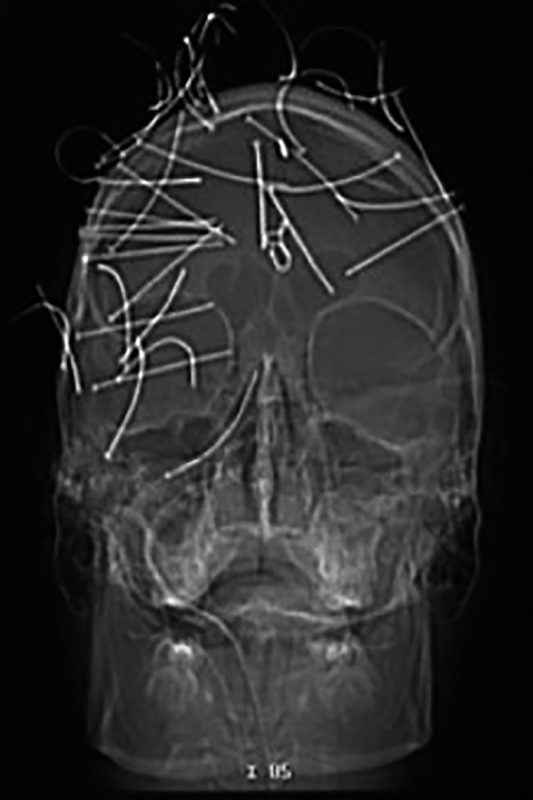Delayed-Onset Seizures Following Self-Inflicted Nail Gun Injury to the Head: A Case Report and Literature Review.
IF 0.6
Q4 CLINICAL NEUROLOGY
Journal of Neurological Surgery Reports
Pub Date : 2022-06-24
eCollection Date: 2022-04-01
DOI:10.1055/s-0042-1749650
引用次数: 1
Abstract
Nail gun use and its associated incidence of injury have continued to increase since it was first introduced in 1959. While most of these injuries involve the extremities, a subset of patients suffer intracranial trauma. The most recent comprehensive review on this particular subject referenced 41 cases and advocated for further discussion regarding proper treatment plans for these individuals. We present the case of a 25-year-old who suffered 35 self-inflicted penetrating head wounds from a nail gun after suffering an amputation injury at his job site. No neurological deficits were present on his arrival to the emergency room. He underwent surgery to treat his arm wound and remove 13 of the 35 nails. The patient was discharged from the hospital on levetiracetam and made a full recovery. Nearly 1 year later, he experienced a seizure at his workplace. However, after resuming his antiepileptic medication, he reports no further complications. This case is distinct for not only being the most nails in a patient's head at presentation, but also following surgery. Utilizing this case, prior review, and 27 subsequent cases, we propose an updated algorithm for diagnosis and treatment of nail-gun-related penetrating head trauma.

头部自伤钉枪致迟发性癫痫:1例报告及文献回顾。
自1959年首次引入钉枪以来,钉枪的使用及其相关的伤害发生率持续增加。虽然大多数这些损伤涉及四肢,但一小部分患者遭受颅内创伤。最近对这一特定主题的全面审查参考了41个案例,并主张进一步讨论针对这些个体的适当治疗方案。我们提出的情况下,一个25岁的人遭受35个自我造成的穿透性伤口,从钉枪在他的工作现场遭受截肢伤。他被送到急诊室时没有神经功能缺陷。他接受了手术治疗手臂伤口,取出了35颗钉子中的13颗。病人在服用左乙拉西坦后出院,完全康复。将近一年后,他在工作场所癫痫发作。然而,在恢复抗癫痫药物治疗后,他报告没有进一步的并发症。这种情况是独特的,不仅是在病人的头指甲最多,而且在手术后。利用这一病例,既往回顾和27例后续病例,我们提出了一种更新的诊断和治疗钉枪相关穿透性头部创伤的算法。
本文章由计算机程序翻译,如有差异,请以英文原文为准。
求助全文
约1分钟内获得全文
求助全文

 求助内容:
求助内容: 应助结果提醒方式:
应助结果提醒方式:


